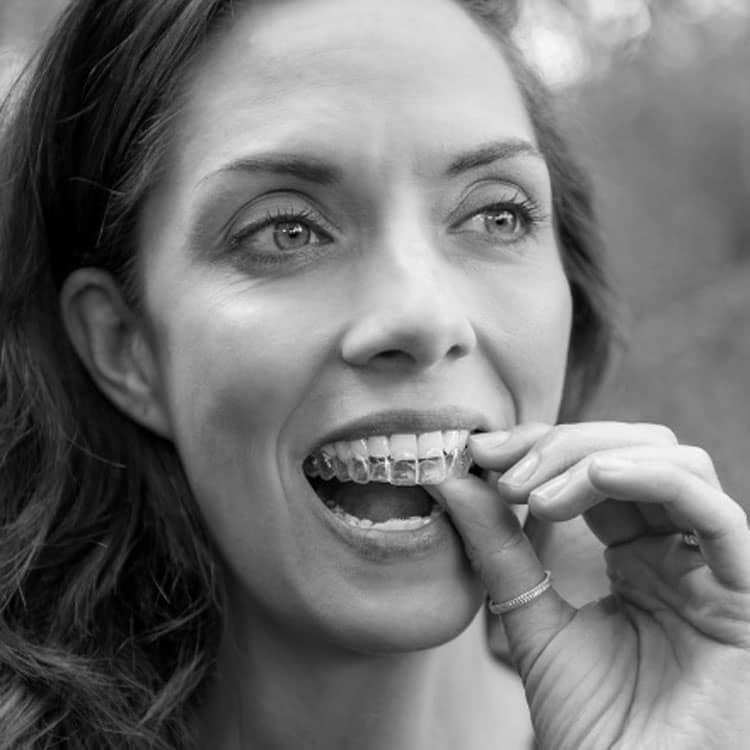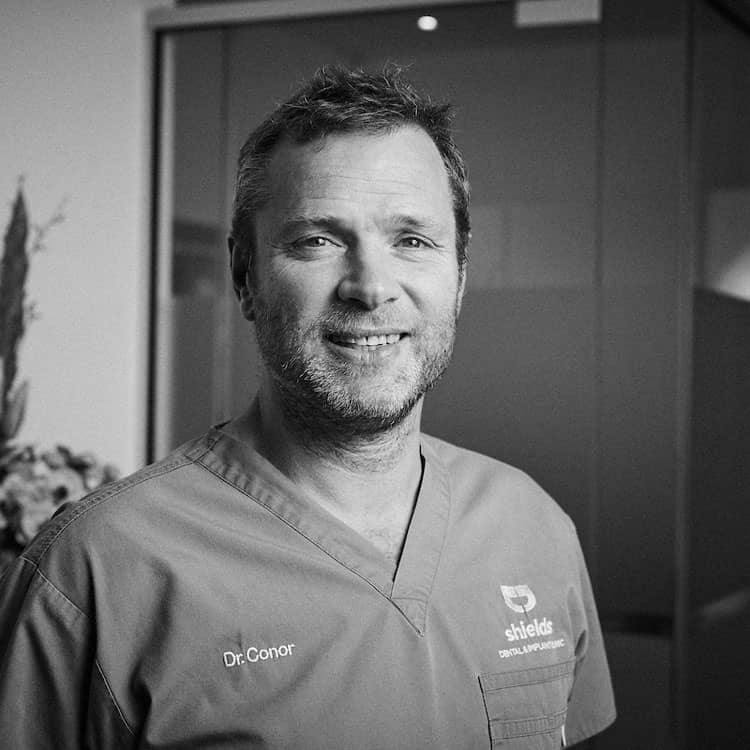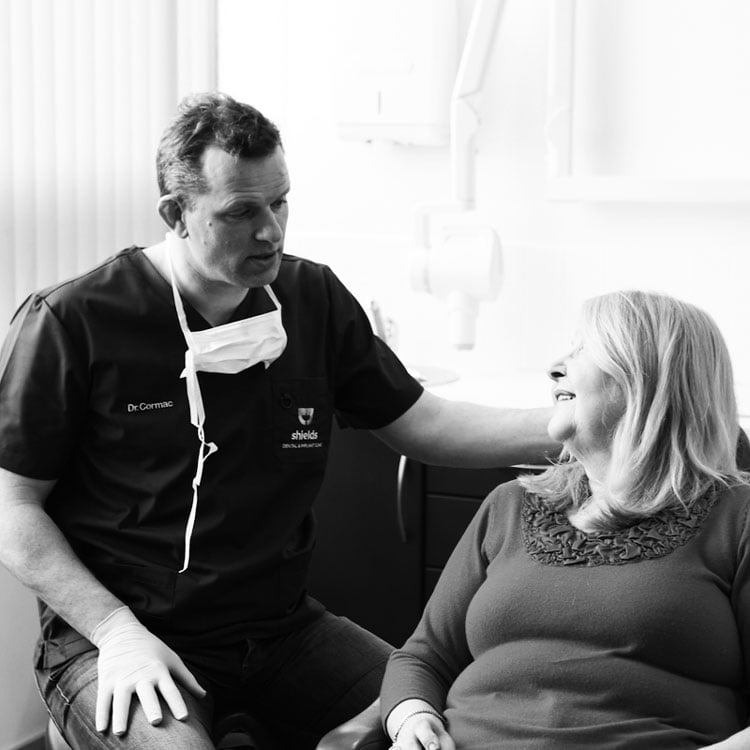Maintain your smile.
Maintain your quality of life.
Dentures are removable appliances which are worn to replace lost or missing teeth. They are designed to enable the wearer to enjoy a healthy diet and smile with confidence. Used for thousands of years, they are a time-tested option for patients with missing teeth and now modern dentures are more comfortable, durable and natural looking than ever. With partial and complete dentures available, this treatment can be used for patients who are missing either a few or all of their teeth.
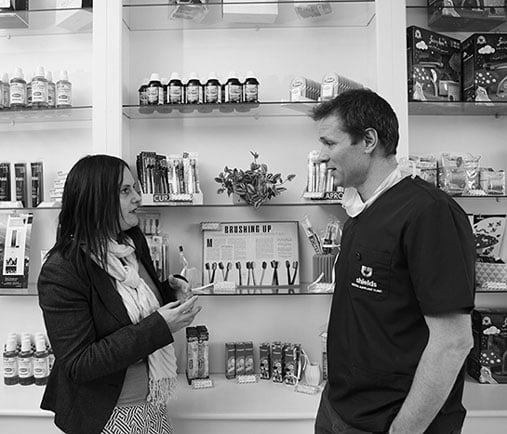
What are
the benefits?
Tooth replacement substantially benefits your health and appearance, providing crucial support for the teeth and lips. Without this support, sagging facial muscles have an ageing effect, and adversely affect your ability to eat and speak. Removable dentures can help you to regain confidence and restore your ability to eat and speak without impediment.
Would you like to know more about dentures and alternatives such as dental implants?
Have a question about a treatment, need to book an appointment or would just like more information? Our treatment coordinators are available for free consultations in person at one of our conveniently located practices.
If you’re ready to take the next steps, please call us or get in touch.

FAQs.
Invisible item
What are dentures made of?
The base of a denture, the ‘plate’, can be made of either acrylic (plastic) or metal. The teeth are normally acrylic materials, made to match your natural teeth. This is especially important in the case of partial dentures.
Will I be able to eat with them?
Eating with dentures takes practice. Start with soft foods cut into small pieces, and chew slowly, using both sides of the mouth at the same time to prevent it from moving. As you become accustomed to your denture, add other foods until your have resumed your normal healthy diet.
Will they make me look different?
Dentures are made to closely resemble the natural teeth. Little change in appearance will be noticeable. Indeed, modern dentures can improve the appearance of your smile and help to ‘fill out’ the appearance of your face.
Will dentures change how I speak?
Pronouncing certain words may require practice, by reading aloud and repeating difficult words. Over time you will adjust—so do not worry! If your dentures occasionally slip when you laugh, cough or smile, reposition it by gently biting down and swallowing. If this continues, consult your dentist.
Will my sense of taste be affected?
It is true that at first, food may not taste quite the same. But this is because your mouth is adjusting to the feel of your denture, and the appliance is interfering a little with the tastebuds which will settle over time. The ability to sense hot food and drink may also be affected, so initially avoid very hot food and drinks, as you may burn yourself.
When should I wear my dentures?
In the first few days, you may be advised to wear them most of the time, including while you sleep. This enables you to get accustomed to your dentures more easily. After this initial period, your dentist may advise you to remove them before going to bed. This allows the gums to rest and helps promote oral health. If you keep them in overnight, it is essential to clean them thoroughly before going to bed, just as you would natural teeth.
Must I do anything special to care for my mouth?
Even with full dentures, you still need to take good care of your mouth. Every morning and evening, brush the gums, tongue and palate (roof of your mouth) with a soft-bristled brush. This removes plaque and stimulates circulation in the mouth. It is vitally important that partial denture wearers brush their teeth thoroughly every day to prevent tooth decay and gum disease that can lead to further teeth being lost.
What is the difference between conventional and Immediate Dentures?
Conventional dentures are made and inserted after teeth have been removed and the tissues have healed. Healing may take several months. Immediate Dentures are inserted immediately after teeth have been removed. To do this, the dentist takes measurements and impressions of your mouth during a preliminary visit.
An advantage of Immediate Dentures is that the wearer does not have to be without teeth during the healing period. However, bone and gums can shrink over time, especially during the first six months after teeth have been removed. When gums shrink, Immediate Dentures may require relining or even replacing to fit properly.
What will dentures feel like?
New dentures may feel awkward or even uncomfortable at first, but only until you become accustomed to them. They may feel loose while the muscles of your cheek and tongue learn to keep them in place. Should this persist, consult your dentist.
It is not unusual to experience minor irritation or soreness in the beginning, and saliva flow may temporarily increase. These problems should diminish in time but if they persist, particularly irritation or soreness, do not wait for a regular checkup. Consult your dentist immediately. You should not remove your dentures, though. By leaving them in, you will be helping the dentist to see what is causing the problem, and to sort it out more quickly.
How do I take care of my dentures?
Dentures are very delicate and may break if dropped. When cleaning, it is recommended that you do so over a folded towel or sink of water. When not worn, dentures should be stored in a container containing sufficient water to cover them. Like natural teeth, dentures must be brushed daily to remove food debris and plaque. Brushing helps prevent dentures becoming stained and helps your mouth stay healthy. There are special denture cleaning brushes available but a soft bristled toothbrush can also be used. Avoid using hard-bristled brushes, which can cause damage. The use of an effervescent denture cleaner will help remove stubborn stains and leave your denture feeling fresher.
Can dentures be re-polished?
Yes they can. After considerable use, dentures can become slightly dull and rough. However, your dentist can re-polish and restore them to their original appearance.
Will my dentures need to be replaced?
Over a period of time, dentures must be relined or re-made due to normal wear, or a change in the shape of your mouth. Bone and gum ridges can recede or shrink, causing jaws to align differently. Loose dentures can cause health problems, including sores and infections as well as discomfort. A loose or ill-fitting denture can also make eating and speaking more difficult. It is important to replace worn or poorly fitting ones before they cause problems.
How often should I see my dentist?
Regular dental check-ups and having your teeth professionally cleaned are vital for maintaining healthy teeth and gums. Most dentists recommend that under normal circumstances this should be done every 6 months. Full denture wearers should consult their dentist as to frequency of visits. With regular professional care, a positive attitude and persistence, you can become one of the millions of people who wear their dentures with a smile.
Our
treatments.
From the regular check-up to the specialist and advanced treatments that are needed throughout life, we always use state-of-the-art equipment and latest recommended techniques.

Open 7 days*
Highly trained specialists and dentists
Your safety is guaranteed in our hands
Payment options
Technically advanced
Convenient locations
No obligation consultations
Find out what makes us different.
Recent Reviews.

SCR, Limerick, Shields Dental & Orthodontic Clinic

Castletroy, Limerick, Shields Dental & Orthodontic Clinic
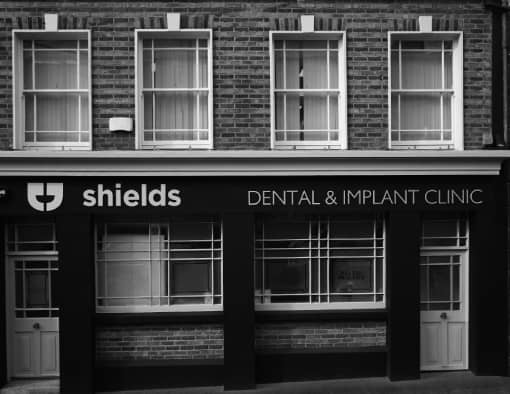
Roscrea, Tipperary, Shields Dental & Orthodontic Clinic

Blackrock, Dublin, Shields Dental & Orthodontic Clinic
Convenient
locations.
You don’t have to go to Beverly Hills to look good, you can go local. In convenient locations in Limerick, Castletroy, Roscrea and Blackrock Dublin. Comfortable but advanced, friendly but professional. Click on your preferred location in the menu or use the arrows to discover more.
For the
smile you have
always wanted.
Use our FREE consultation service to speak to one of our Treatment Coordinators, who give you information about how we can help, without any financial commitment.
Most importantly it helps to build your confidence in starting your journey with Shields to the smile you have always wanted.
We’ll discuss with you what you would like to achieve with your dental health and the appearance of your smile, answer any questions and listen to any problems you may have had with your teeth in the past.

